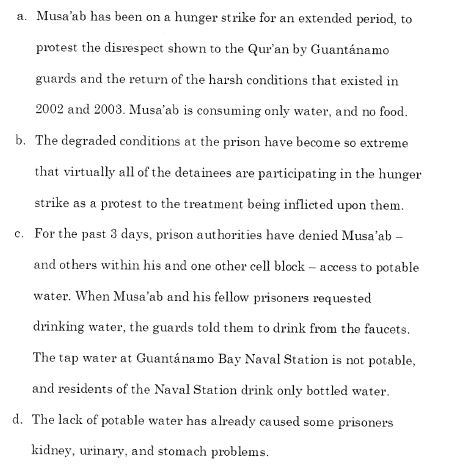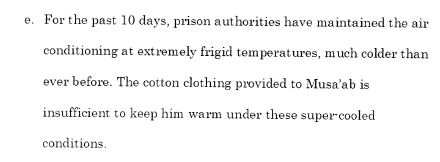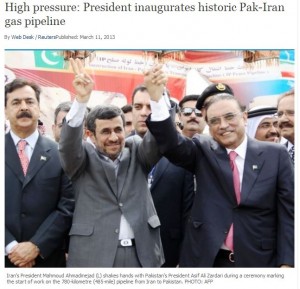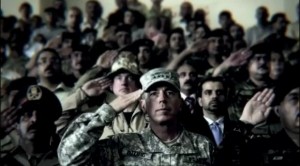John Bogdan: The Face of the Guantanamo Crackdown
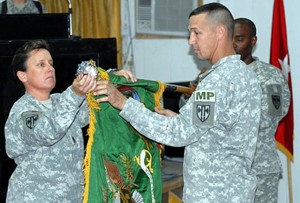
John Bogdan as his 95th Military Police Battalion assumed command of Forward Operating Base Rustimayah in Baghdad in November, 2007.
In yesterday’s pre-dawn hours, the guard force at Guantanamo entered the Camp 6 communal area and removed the prisoners to individual cells. Here is Carol Rosenberg’s description of the operation (emphasis added):
U.S. forces raided Guantánamo’s showcase prison camp early Saturday, at times battling with detainees, to systematically empty communal cellblocks in an effort to end a three-month-old protest that prisoners said was sparked by mistreatment of the Quran, the military said.
“Some detainees resisted with improvised weapons and, in response, four less-than-lethal rounds were fired,” according to a statement issued by the prison camps at the U.S. Navy base in Cuba. “There were no serious injuries to guards or detainees.”
The pre-dawn operation took place hours after delegates of the International Committee of the Red Cross left the remote island prison and during a blackout of news media access to the crisis in the prison camps.
The worst injury involved a rubber pellet piercing a captive’s “flank,” said Army Col. Gregory Julian at the U.S. Southern Command, which has oversight of the prison camps operation. The captives resisted the assault with broom and mop handles as well as plastic water bottles that had been wrapped and modified into clubs, he said.
Note how the military waited until after the ICRC had left Guantanamo (and after the ICRC’s president met with Barack Obama) to make this move while there were also no press present at the compound. I have noted previously how the military’s actions and statements during the hunger strike appear to have been an information operation and this move fits that description exactly.
When the military cancelled commercial flights to Guantanamo, I speculated on whether the new commander of Joint Task Force Guantanamo, John Smith, who took over in June of 2012, was responsible for the change in atmosphere there. It appears that the defense attorneys feel that more of the blame for deteriorating conditions should lie with John Bogdan, who is Commander of the Joint Detention Group (alternately described as the warden, he is in charge of the guards). See, for example, this parenthetical statement in an Andy Worthington post describing information he got from Shaker Aamer’s attorney: Read more →

